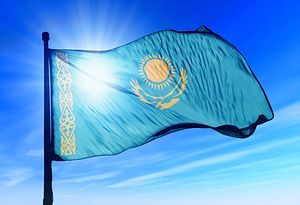This week, Astana hosted a group of representatives of the Syrian opposition for reconciliation talks. According to Sputnik, 30 opposition figures attended the two-day talks and “the majority” signed a final document which calls on foreign fighters to leave Syria and says “the condition for preserving Syria as a united national government is the grassroots transfer on the basis of broad-based decentralization to a pluralistic democracy.”
Neither representatives from the government of Syrian President Bashar al-Assad nor those from ISIS showed any interest in negotiations of any sort. The Syrian opposition encompasses more than a dozen different groups and is often called fractious and deeply divided.
The U.N. estimates that Syria’s ongoing four year civil war has killed more than 220,000 people. The Moscow and Geneva Syria peace talks have made little progress, repeated ceasefires and truces have fallen the the wayside and the rise of ISIS terrorized the entire region. Foreign Minister Erlan Idrissov insists that Kazakhstan has no “intention to substitute the existing platforms.”
In an article in Al-Jazeera, Idrissov highlights the pride Kazakh’s have in the “stable, harmonious and moderate society we have built.” He comments that “70 percent of our population are Muslim but their faith has nothing in common with the hate-filled doctrines which are a perversion of all in which they believe.” He continues:
But we are not complacent. While violent fanaticism had not taken hold in Kazakhstan, it is a growing threat within our region. We recognise the importance of the collective efforts to tackle extremism and its causes and are determined to play our full part.
It is why, at the request of a number of Syrian opposition groups, we hosted talks this week to facilitate finding ways to tackle the country’s humanitarian crisis and create the common ground to end the conflict.
After four years of fighting and the immense suffering it has caused, it is clearer than ever that only a political solution will prevent further bloodshed and destruction. No matter what difficulties there are to overcome, the Geneva process remains the best hope of a lasting and peaceful solution.
The talks in Astana were initiated by Randa Kassis, the head of the Coalition of Secular and Democratic Syrians, which is a grouping of secular and democratic opposition groups. Kassis is also a member of the Syrian National Coalition, a larger umbrella opposition organization recognized internationally, in particular by the United States, as “a legitimate representative” of the Syrian people–though the U.S. has stressed that the SNC is not a “government in exile.”
Kazakhstan is very clearly positioning itself as more than a regional economic power (its GDP dwarfs its Central Asian neighbors). Its hopes to be a global player can be glimpsed in President Nursultan Nazarbayev’s “Plan for the Nation,” which he outlined during his April 29 inauguration as including five institutional reforms–”establishing a modern, professional and autonomous state apparatus; solidifying the rule of law; achieving industrialization and economic growth based on diversification; unifying as a single nation for the future; and functioning as a transparent and accountable government”–and 100 concrete steps to implement them.
Nazarbayev’s aim is to make Kazakhstan one of the world’s top 30 most-developed nations by 2050. Hosting talks–whether for Syria or Ukraine–is yet another piece of the larger plan. Regardless of the specific outcomes of individual rounds of talks, the fact that people gather in Astana to deal with the world’s pressing problems bolsters the country’s image.
Nazarbayev, who turns 75 this summer, is unlikely to be around when 2050 dawns (he’d be 110) and the question of succession–who rules Kazakhstan after it’s first and only president passes–is serious and unanswered. The focus of the five reforms is on building a sustainable and resilient state–professionalization, rule of law, economic diversification, unity, and accountability. Some, however, may note that political reforms are largely absent.
On the Syrian front, Idrissov says Kazakhstan is prepared to host a second round.

































